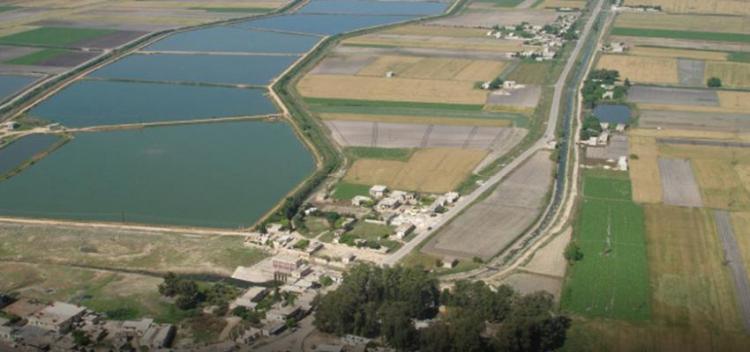After relative calm in Hama, IDPs of Qastoun in al-Ghab Plain back to their homes
Hama – North-Press Agency
More than 400 displaced families have returned to their homes in al-Ghab Plain, in the western countryside of Hama, after the relative calm in which the area is witnessing since late 2019.
The head of the local council of the town of Qastoun Muhannad al-Na'san told North-Press that more than 400 families have recently returned to Qastoun in al-Ghab Plain, including dozens of displaced families from the villages near Qastoun, noting that the return is still going on from the camps in north of Syria and Idlib countryside.
Al-Na'san added that the weakness of services and the spread of destruction and debris prevent the return of all the displaced to their homes, as the people are waiting for the provision of their needs to return, indicating that the return is currently limited to families that depend on agriculture as a single source of livelihood, and this is the case 80% of the population of the area.
According to al-Na'san, the humanitarian organizations or charities haven’t drawn any attention to the town until now on the pretext the area is close to the front-lines, which makes the town without services as the nearest medical point is about 30 km away from the town, and there is one school, where its staff works as volunteers from the beginning of the current school year.
Al-Na'san pointed out that most of the people of Qastoun are working in the field of agriculture, which has recently declined dramatically as a result of the recent military operations in the area, in addition to the high costs of fuel and basic agricultural materials, as well as the fear among the people from burning their seasons when their harvest time approaches, noting that 70% of the inhabitants of al-Ghab Plain didn't benefit from their previous seasons due to their burning because of the military operations.
Abu Khaled, from the town, told North-Press: "We were displaced from the town several months ago as a result of the military operations which took place in the area, we lost our agricultural seasons of wheat and barley due to their burning because of the ongoing fighting.”
"Today, after the relative calm prevailed in the town, me and my family decided to return back to our homes after great suffering in the displacement camps, we started to plow our lands and seeded it with wheat and barley a few days ago, despite our fears of a repetition of what happened last year,” he added.
Abu Khaled confirmed that agriculture is his only source of livelihood, and he lives on what this land produces, pointing out that his four children are without education today, because of his fear of being targeted as it happened in previous years, as he taught them many professions such as blacksmithing and maintenance instead of education, attributing to the fact that no one has recognized the school documents issued in schools in the armed opposition-held areas, as the basic education certificate in Idlib isn't recognized in Afrin, Azaz or the areas controlled by the Syrian government forces.
As for Jaber Abu Ali, one of the displaced people in the area, who is from the town of al-Shari'a, which is under the control of the Syrian government, told North-Press that raising sheep is a profession which he inherited from his father, and it is also his only source of livelihood, as he returned to al-Ghab Plain due to the availability of pastures and the appropriate place for his sheep, pointing out that northern Syria doesn't have suitable places for grazing, especially since the area is tree-lined.
In turn, the head of the Council of Qastoun, Muhannad al-Na'san appealed to the humanitarian organizations to look at this forgotten town and its simple and poor people, who didn't receive any support from any organization at all, he also called for the necessity of providing agricultural and animal projects for the people of the area.

